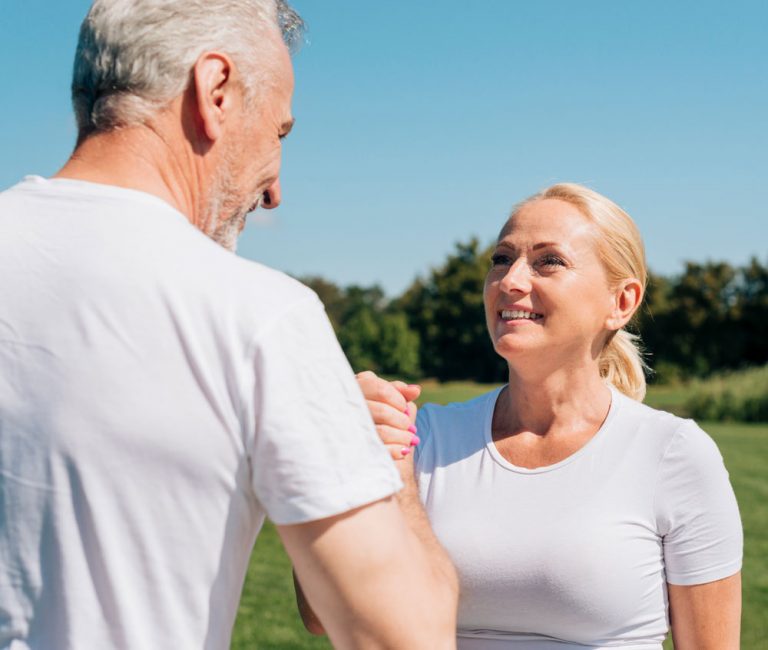We all know people who have seemingly gotten less fit as they have gotten older, but equally, we have all heard of people running marathons into their golden years. There are a number of reasons why some people seem to get old before their time, and equally, we can usually track the reasons some are still hitting personal bests into their retirement.
But, anecdotes aside, do fitness levels decline with age? We thought we’d take a look at the science.
What The Science Says…
In one study, published in the Journals of Gerontology, participants between 30 and 90 years old were given simple tests to measure their strength, balance or endurance. For example, rising from a chair repeatedly for 30 seconds; standing on one leg for a minute; and walking for six minutes. Walking speed over a distance of about 10 yards was also measured. The researchers concluded that fitness levels, on average, declined as participants got older.
But what are we defining as fitness? This deserves a little more exploration.
What is Fitness?
One definition of fitness is the condition of being physically fit and healthy, but another definition includes the ability to carry out particular tasks. Here we are concerned with muscle function.
Muscle Mass and Function
We know there is a steady decline in muscle mass and function as we age. Time and time again we see data highlighting that muscle mass decreases around 3-8% per decade after the age of 30 and the rate of decline is even higher after 60. This involuntary loss of muscle mass will significantly affect muscle function and strength. To this end, we can see there is a normal decline in muscle fitness as we age. However, we know that resistance training can mitigate this muscle loss.
Cardiovascular Health
The cardiovascular system consists of the blood, heart, and blood vessels.
Body cells must receive a certain amount of oxygen from blood each minute, to maintain health and life. When cells are metabolically active, as with exercise, they take up even more oxygen from the blood. During rest, cellular metabolic need is reduced and the workload of the heart decreases.
So, any activity we do, we are relying on the function of our cardiovascular system.
The general consensus is that cardiovascular fitness declines over time. Statistical models have shown that while fitness levels decline continuously, the decrease is not linear or steady, for example, cardiorespiratory fitness declines more rapidly after age 45. The decline for men is also greater than that for women.
Despite this, it is clear that being active, keeping a normal BMI and not smoking are associated with substantially higher levels of cardiorespiratory fitness during the adult life span. Being inactive and having a high BMI are associated with “ageing faster” and suffering health concerns.
Nervous System Function
The brain and nervous system are the body’s control centre. They are responsible for every move we make. As we age, our brain and nervous system go through natural changes which sometimes mean messages don’t get sent around the body as quickly as they used to. Breakdown of nerves can also affect sensations or perception.
Whenever we carry out a new task, a new connection is forged in our nervous system, much like us walking a new route through a forest. We trample some grass and push some branches out of our way. The more we walk that route, the easier it gets.
When we forge a new connection in our brain, the more we use it, the stronger it gets. If we stop using it, like those algebraic equations from school, we lose it. If we want to keep our nervous system and its connections strong, we need to keep using them; so any movement you are doing, keep it up!
We can’t deny there are natural biological changes which can influence our levels of fitness as we age, but that doesn’t mean we can’t find a new optimal fitness level. We start with where we’re at, and work with that. Whether we are looking to maintain muscle mass and function, focus on cardiorespiratory fitness or optimise our control centre, we can still be “fit” as we age.
If you would like any support on how to start, please get in touch to see how we can help.
Thanks for reading,
Lisa


